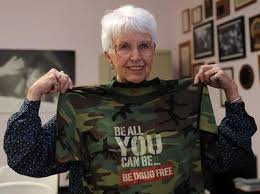
“Youth don’t care who you are, until they know you care”
Attention:
Mentors/Senior Mentors will be partnering with two other YHH.ROCKS programs called “BROTHERS OF THE BIBLE” and SISTERS OF THE BIBLE. These three programs complement each other in creating the next generation of youth mentors.
When a “youth” (Member) reaches their 21st. birthday, they become a “Mentor” which entitles them to become a “manager” of a ” Provincial YHH.ROCKS Chapter” and or an “International Representative.”
When a “Mentor” reaches his or her 40th. birthday, they become a “Senior Mentor” which entitles them to become a Senior mentor/Leader, and or a National or International Director or serve on the YHH.ROCKS “Senior Board of Directors”.
Becoming a Christian youth mentor is a powerful way of exerting a one-on-one influence on young people so that they can be transformed. It works—even in the secular realm.
Becoming a Mentor – “Sharing Truth with Someone Who Doesn’t Want to Hear It”
When some people think of passing the baton to the next generation, they say, “But the next generation doesn’t want to hear it. They’re not open to wise counsel!” In a certain sense, that’s true. But we have learned that sometimes this uncertainty has more to do with how the truth is presented than the truth itself.
A MENTOR SHOULD:
- Be authentically interested.
- Communicate with integrity.
- Never passively accept what is in your power to change.
- Follow God’s leading.
- Draw on the experience of others.
- Seek out opportunities for training and networking.
YHH MENTORING PROGRAM
Teens are starving for attention from an adult who believes in them.
Without a significant adult in their life, a teen is a target for bullying and is more likely to struggle with depression. This condition could lead to suicide.
Youth mentoring is a process of matching young people with a caring adult. Adult mentors are usually unrelated to the child or teen and work as volunteers through community, school, or church based programs.
Training is essential to the mentor preparation process. Not every volunteer possesses the qualities, emotional stability, or skills to be a mentor. The most successful mentoring programs interview potential mentors and offer mentor training. They consistently check in with mentors and youth to monitor progress and track feedback.
READ MORE READ LESS
Click Here – to complete the “Youth Mentor Program” form
THE “THE I’M FOR YOU” PROGRAM
“Youth seldom improve when they have no other model but themselves to copy.”– Oliver Goldsmith
1) Be A Role Model – Be there when a youth is suffering and needs someone to talk to.
2) Establish Strong Personal Boundaries – When a youth doesn’t have a healthy relationship with and adult, they often lack confidence. They will be less likely to develop the communication and social skills to become a productive mature citizen.
3) Build Relationships Grounded In Trust – Without a mature role model, many young people are suspicious of adults. Do not try to become a best friend or a substitute parent. Mentors are “Positive Role Models” who invite open communication and mutual respect.
4) Create Realistic Goals and Expectations – Do not expect a youth to confide in you right away. Ask questions; get to know the youth. As your relationship grows, the youth will feel more comfortable sharing his or her life with you.
5) Have Fun Together –Ask the youth what they want to do (some youth want you to suggest ideas). This will show respect and will help grow a strong relationship.
6) Lips Are Sealed: – Let the youth know that whatever they reveal to you about their personal life, will be strictly confidential and can be shared without fear of judgement.
7) Listen: – “We listen with our ears, but we hear with our Heart” When you ask questions and “Hear With Your Heart” a youth will share their stories and personal experiences.
8) Giving Advice: – Always focus on solutions when giving advice to a youth. When they tell you that their emotions are out of control, encourage them to focus their attention on the things they can control: Like their thoughts, feelings, decisions, and actions. Tell them not to get stuck on the problem; consider the solutions.
9) Be Positive – You can share your experiences to demonstrate empathy, as long as you remember that it’s all about the youth and not about you. Do not tell a youth about your struggles when you were growing up (to them, that was a long time ago). If the youth feels “stuck,” remind him or her they can change their perspective by changing their thoughts.
10) Primary Relationship – Your relationship is with the youth, not their parents or family members. Don’t try to act as an intermediary between the youth and their family.
11) Being an Example – A youth will lose trust in you if they can’t depend upon you to honor your commitments. If you are unsure about the time or emotional commitment you have to share with a youth, do not volunteer to be a mentor until you are confident you can fulfill the responsibilities.
12) The Good News: – Our youth don’t have to drown in silent desperation. A mentor is a torch who helps our youth see their futures. Mentoring offers emotional support, guidance, and encouragement for lonely youth. All youth are only one mentor away from being a success in life.
READ MORE READ LESS
Make a promise today that:
“No Youth Will Ever Walk Alone”
TPAP Centre 905-238-3547